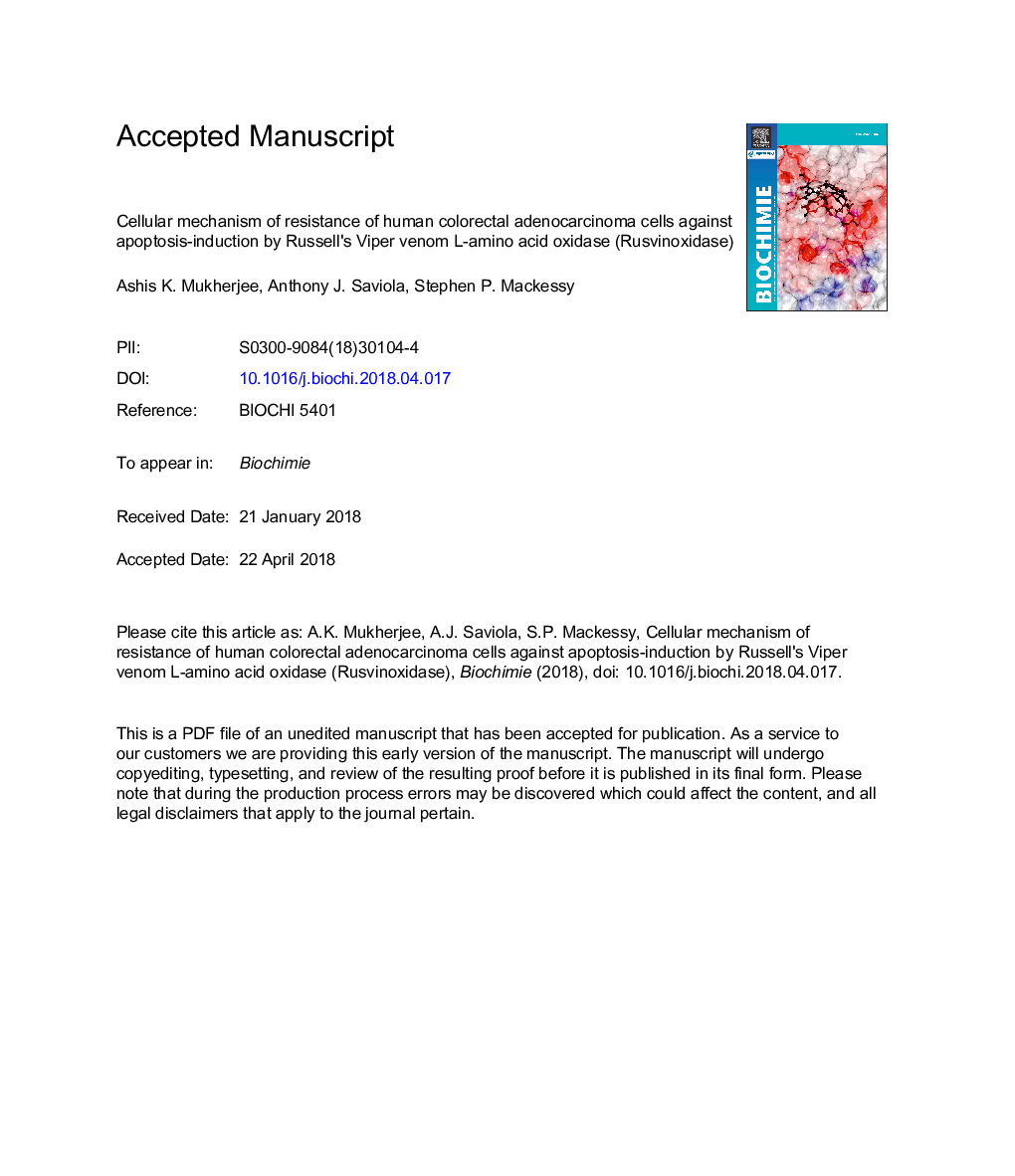| Article ID | Journal | Published Year | Pages | File Type |
|---|---|---|---|---|
| 8304145 | Biochimie | 2018 | 31 Pages |
Abstract
The present study highlights the cellular mechanism of resistance in human adenocarcinoma (Colo-205) cells against apoptosis induction by Rusvinoxidase, an l-amino acid oxidase purified from Russell's Viper venom (RVV). The significantly lower cytotoxicity as well as apoptotic activity of Rusvinoxidase towards Colo-205â¯cells (compared to MCF-7 breast cancer cells) is correlated with lower depletion of cellular glutathione content and increased down-regulation of catalase activity of Colo-205â¯cells following Rusvinoxidase treatment. Exposure to Rusvinoxidase subsequently diminished reactive oxygen species (ROS) production and failed to impair mitochondrial membrane potential, resulting in apoptosis induction resistance in Colo-205â¯cells. Further, higher expression levels of caspase 8, compared to caspase 9, indicate that Rusvinoxidase preferentially triggers the extrinsic pathway of apoptosis in Colo-205â¯cells. A time-dependent lower ratio of the relative expression of Bax and Bcl-xL (pro- and anti-apoptotic proteins) in Colo-205â¯cells, compared to our previous study on MCF-7â¯cells, unambiguously supports a higher cellular resistance mechanism in Colo-205â¯cells against Rusvinoxidase-induced apoptosis.
Related Topics
Life Sciences
Biochemistry, Genetics and Molecular Biology
Biochemistry
Authors
Ashis K. Mukherjee, Anthony J. Saviola, Stephen P. Mackessy,
